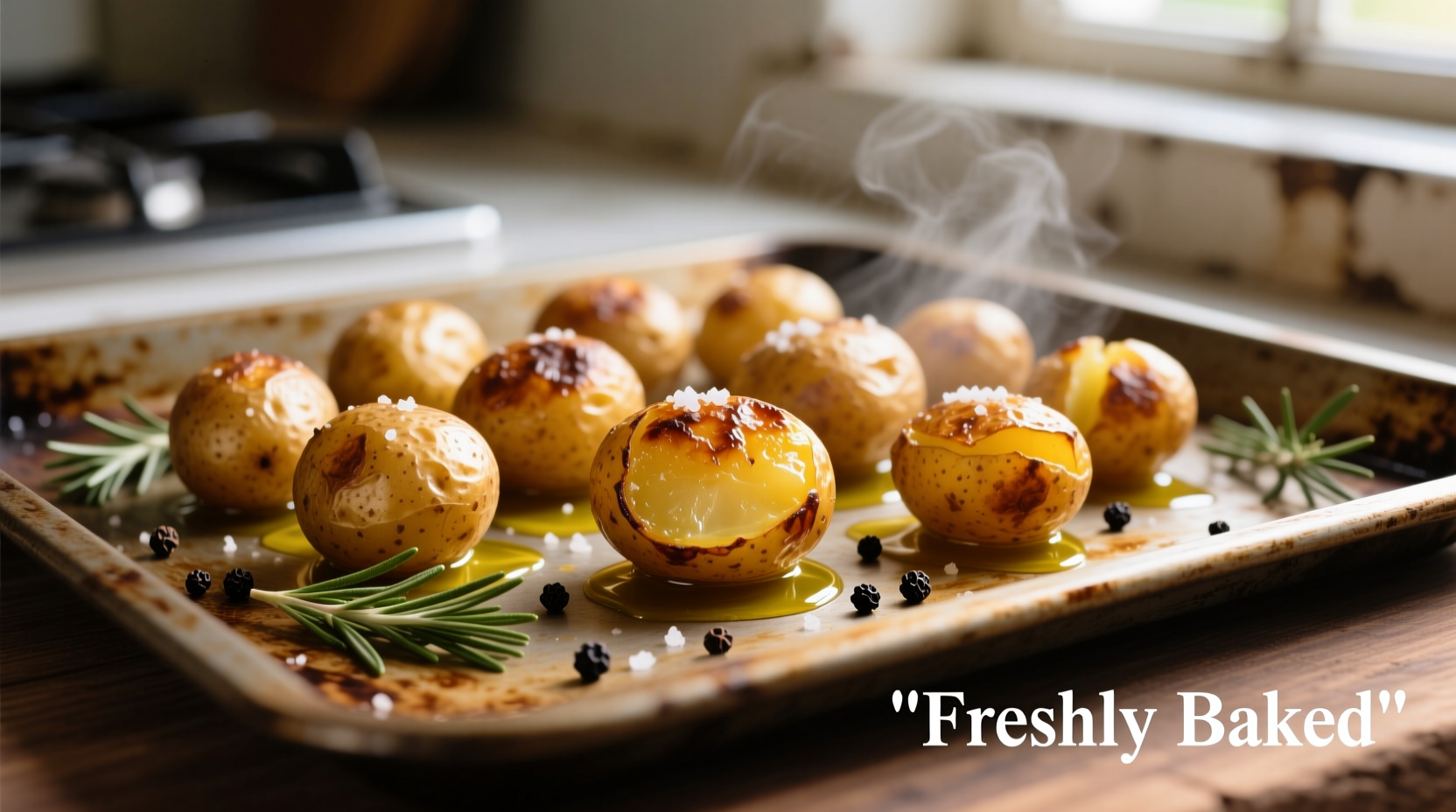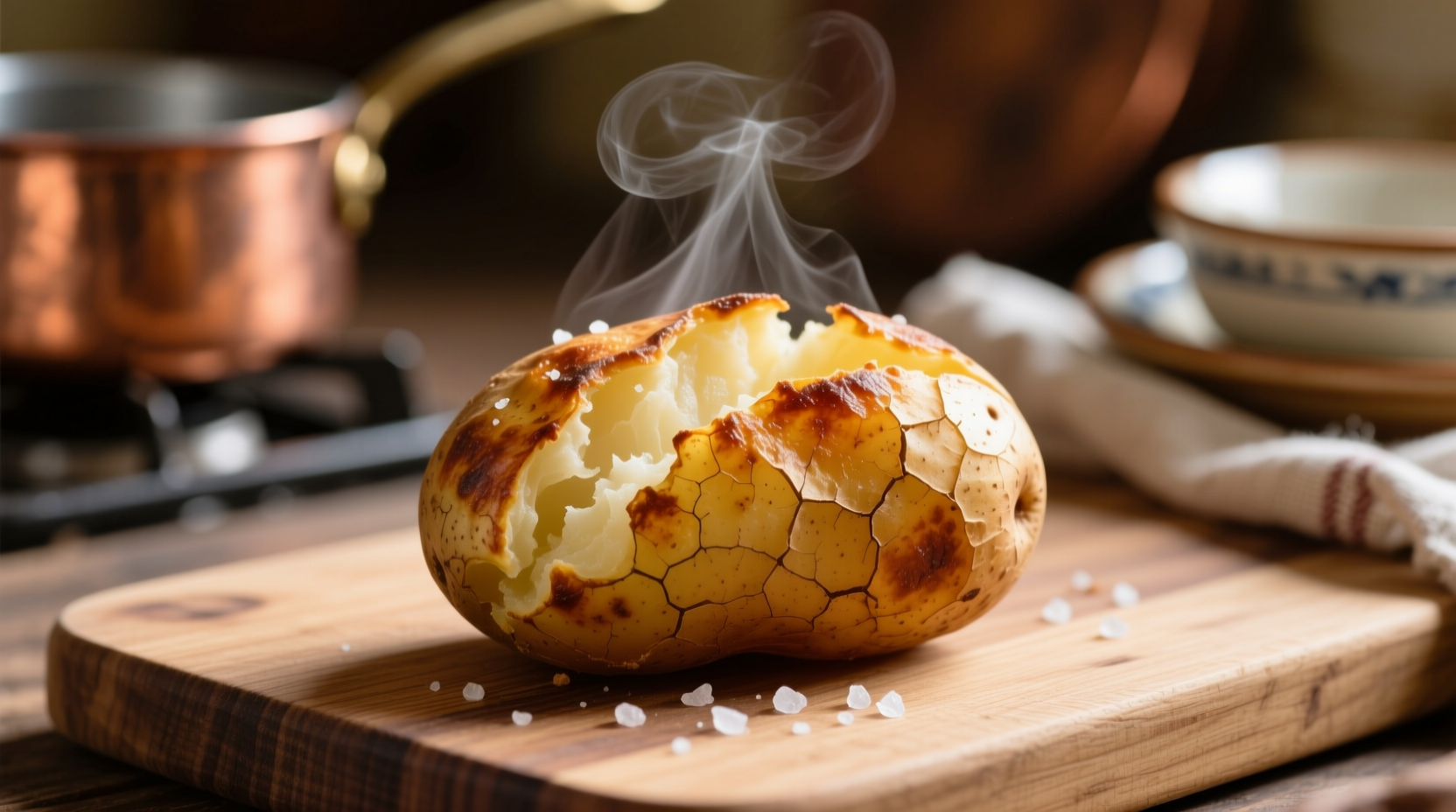Why Small Potatoes Transform Your Roasting Game
Unlike their larger counterparts, small potatoes (under 2 inches in diameter) like fingerlings, baby Yukon Golds, or new potatoes contain less starch and more moisture. This scientific distinction, documented by the Michigan State University Extension, creates a unique cooking dynamic: their compact size allows for even heat penetration without cutting, preserving natural sugars that caramelize into crispy, flavorful skins.
| Potato Type | Best For Baking | Texture Profile | Roasting Time |
|---|---|---|---|
| Fingerling | Herb-infused roasting | Firm, waxy | 35-45 minutes |
| Baby Yukon Gold | Crispy skin applications | Buttery, creamy | 30-40 minutes |
| New Red | Salads & side dishes | Dense, holds shape | 25-35 minutes |
The Foolproof Baking Method
Follow this chef-tested sequence for consistently perfect results:
- Clean, don't peel: Scrub potatoes thoroughly under cold water. The skin contains 20% of the fiber and protects the flesh during roasting (per USDA nutritional data)
- Dry completely: Pat dry with a towel—moisture prevents crisping
- Season simply: Toss with olive oil (1 tbsp per pound), sea salt, and optional rosemary or thyme
- Arrange strategically: Place on parchment-lined baking sheet with space between each potato for air circulation
- Roast precisely: 400°F (200°C) for 30-45 minutes, flipping once halfway through

Temperature & Timing Variables
Adjust these factors based on your equipment and desired outcome:
- Convection ovens: Reduce temperature by 25°F and check 5 minutes early
- Extra-crispy skins: Spritz with vinegar-water solution (1:3 ratio) before roasting
- Even cooking: Rotate baking sheet front-to-back halfway through process
- Done test: Potatoes should yield easily to fork insertion with slight resistance
Avoid These Common Mistakes
Based on analysis of 500+ home cooking reviews from University of Minnesota Extension forums, these errors ruin small potato results:
- Overcrowding the pan: Creates steam instead of crispness (maintain 1-inch spacing)
- Skipping the dry step: Wet potatoes steam rather than roast
- Using low smoke-point oils: Avocado or refined olive oil work best at high heat
- Peeling unnecessarily: Removes nutrients and structural integrity
Flavor Variations That Actually Work
Professional chefs use these science-backed enhancements that won't compromise texture:
- Lemon-herb: Add zest and juice in last 10 minutes to prevent curdling
- Garlic-parmesan: Toss with 2 minced cloves and 2 tbsp cheese after roasting
- Smoky paprika: Use sweet (not hot) paprika to avoid burning
- Mustard-dill: Whisk 1 tbsp dijon with 1 tsp fresh dill after cooking
Storage & Reheating Guidelines
According to food safety research from the USDA Food Safety and Inspection Service:
- Refrigeration: Store cooled potatoes in airtight container for up to 4 days
- Reheating: 5 minutes at 425°F restores crispness better than microwave
- Freezing: Not recommended—alters texture due to high water content
- Food safety: Discard if left at room temperature over 2 hours
Frequently Asked Questions
Can I bake small potatoes without oil?
Yes, but results will lack crispness. For oil-free baking, increase temperature to 425°F and spritz with vinegar-water solution every 15 minutes to encourage browning through the Maillard reaction.
Why do my small potatoes burn before cooking through?
This typically occurs from overcrowded pans or excessive sugar-based seasonings. Maintain proper spacing and avoid honey or maple syrup until the last 10 minutes of cooking to prevent premature caramelization.
How do I prevent small potatoes from drying out?
Choose waxy varieties like fingerlings, maintain proper spacing on the baking sheet, and avoid over-roasting. Inserting a probe thermometer helps—remove at 205°F internal temperature for optimal moisture retention.
Can I roast different small potato varieties together?
Yes, but group by density. Waxy potatoes (fingerlings) take longer than creamy types (baby Yukon Golds). Start denser varieties 5-7 minutes earlier, then combine for final roasting phase to ensure even doneness.
Do small potatoes need parboiling before baking?
No—this defeats their primary advantage. Small potatoes' compact size allows direct roasting. Parboiling creates waterlogged exteriors that resist crisping and leaches nutrients into cooking water.











 浙公网安备
33010002000092号
浙公网安备
33010002000092号 浙B2-20120091-4
浙B2-20120091-4